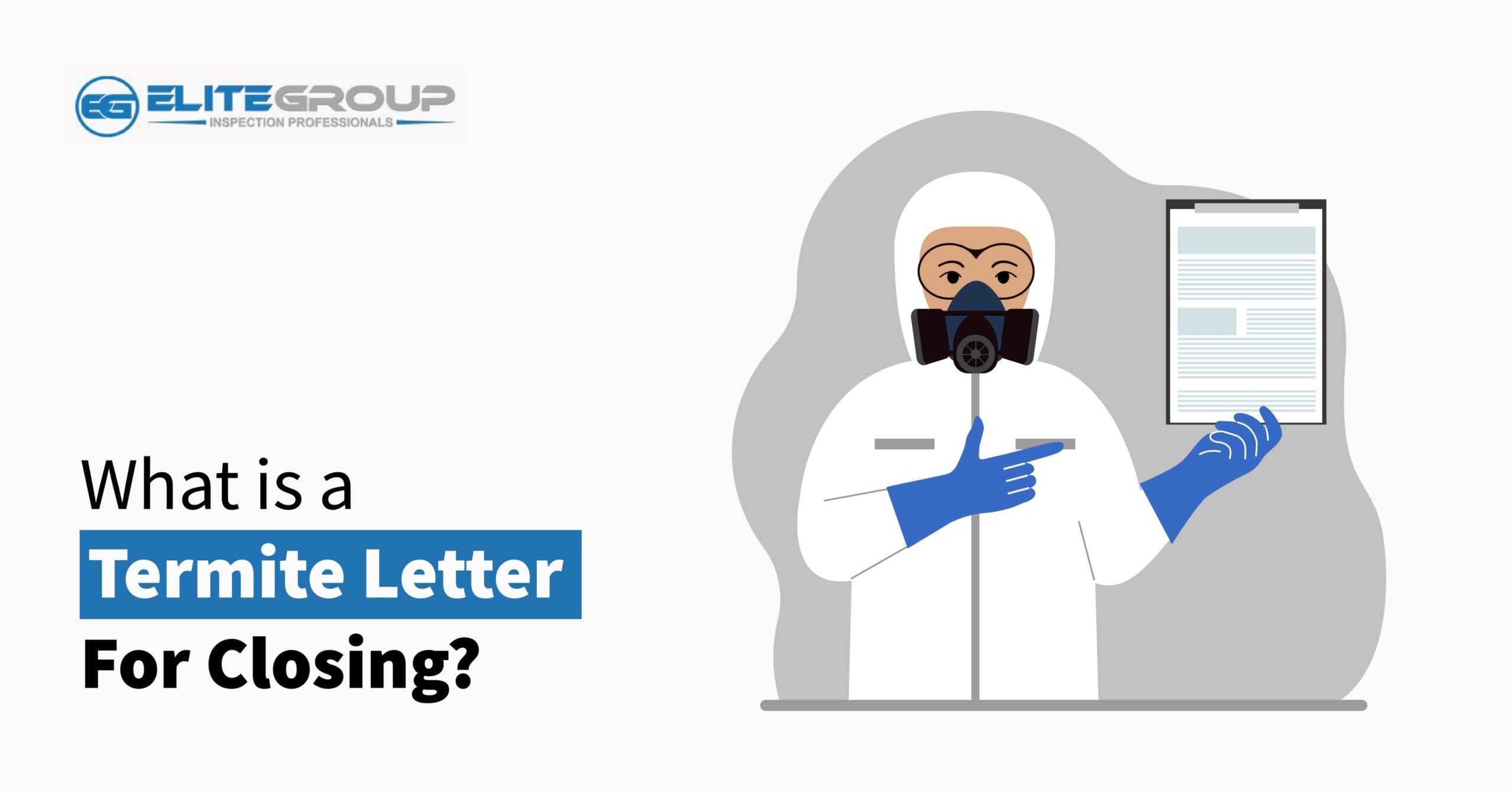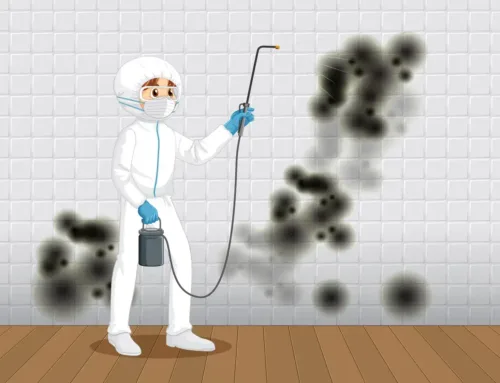A termite letter for closing is a document confirming a home for sale is inspected for any signs of wood-destroying insects. And there were no termites or wood-destroying insects found. This makes such letters an essential part of the due diligence process.
There are several benefits to acquiring a termite letter. It can help in getting approval for an FHA or VA loan. Furthermore, mortgage companies might also require one. Home sellers with a termite contract before closing the sale can save time and expedite the sale. This letter can also help avoid last-minute surprises.
Of course, there is a lot more to termite letters. Read below to learn more about them, how to get one, and their benefits.
What Is the Purpose of a Termite Letter?
You usually require a termite clearance letter in real estate transactions. Also known as the Wood Destroying Inspection Report (WDIR) or termite inspection report, these letters have the primary purpose of providing critical information about the presence or absence of termite infestations and other wood-destroying insects on a property.
Following are some of the different purposes.
Property Evaluation
These are used to evaluate the condition of a property. They are specifically concerned with the risk of termite and wood-destroying insect damage.
They help determine whether the property is infested with termites or other wood-destroying pests.
Buyer’s Protection
For potential homebuyers, a WDIR offers protection. It ensures buyers know about any existing termite issues or damage before finalizing a real estate purchase. This information is essential for making informed decisions about property investments.
Seller’s Disclosure
These letters provide a platform for sellers to disclose any known termite issues or wood-destroying insect problems. Sellers are typically legally obligated to disclose such information to potential buyers.
Negotiations
The findings in such a letter can be a basis for negotiations between buyers and sellers.
If termite damage is identified, buyers may request repairs, treatment, or financial concessions to address the issues before closing the deal.
Compliance with Regulations
Many local and state regulations require termite inspections. Thus, termite letters in real estate transactions protect the interests of buyers and sellers.
Preventing Future Damage
Termite letters can also be a proactive measure for preventing future termite infestations and structural damage. The report may include recommendations for preventive measures and treatments.
What Does A Termite Letter Include?
It includes a wide range of information. It can range from property information to the scope of the inspection.
Following is the information that is usually included.
Property Information
This section includes details about the property. It documents the address, owner’s name, and the inspection date.
Inspection Details
This section details information about the licensed pest control company or inspector. This will include the inspector’s contact details and credentials.
Observations
The report describes the inspector’s observations. It will highlight any signs of termite or wood-destroying insect activity. This section may also detail the location and severity of the findings.
Diagrams or Photos
A letter without a pictorial representation of areas of concern is hard to understand. So, some termite letters include photographs or diagrams. Visual aids can help buyers and sellers better understand the inspector’s findings.
Recommendations
The letter may include recommendations if an inspector finds termite activity or damage. These recommendations can range from necessary repair treatments to other corrective actions.
Treatment History
This includes information about any previous termite treatments or damage repairs. These indicate the property’s history with termites.
Scope of Inspection
This is a description of the areas and components of the property that underwent inspection. This often includes the visible and accessible areas of the structure.
What Are The Benefits of A Termite Letter?
The following are five major benefits.
Transparency and Informed Decisions
Such a letter provides transparency regarding the property’s condition concerning termite or wood-destroying insect issues. Buyers can make informed decisions based on the findings. This ensures that the buyers are aware of any existing problems.
Protection for Buyers
Secondly, the termite clearance letter serves as a protective measure for buyers. It helps the buyers avoid purchasing a property with hidden termite damage. If issues are identified, it offers an opportunity to negotiate repairs or treatments with the seller before closing.
Compliance with Legal Requirements
In many regions, termite inspections and the provision of termite letters are legal requirements for real estate transactions. Complying with these requirements ensures that the transaction is legally sound.
Preservation of Property Value
Addressing termite issues before closing helps preserve the property’s value. Timely repairs and treatments can prevent further damage and protect the long-term investment.
Enhanced Marketability:
A property with a termite clearance letter is more attractive to potential buyers. It can enhance the property’s marketability, potentially leading to a smoother and faster sale.
These benefits highlight the significance of a termite letter in the real estate closing process. These benefits also show how the letter provides crucial information. And protects the interests of all parties.
How Long is a Termite Letter Valid?
The validity of a termite letter can vary depending on local regulations and the policies of the pest control company that conducted the inspection.
It is often typically valid for a certain period. This period can be either 30 days, 90 days, or anywhere in between.
The limited validity is because the property’s condition can change over time. New termite infestations or damage may have occurred if the inspection was conducted several months ago. It is possible that this eventually renders the information in the report outdated.
It’s common for the report to have a defined expiration date to ensure that the information is current and accurate at the time of closing.
Both buyers and sellers need to be aware of the expiration date. They shall ensure that the termite letter is still valid at closing.
If the report has expired, a new inspection may be required. This is to confirm the property’s condition about termites and wood-destroying insects.
Local regulations and real estate customs can influence the validity period of a termite letter. Thus, it’s advisable to consult with the pest control company and local authorities to determine the specific requirements in your area.
Termite Letters: A Tool for Buyer and Seller Assurance
Whether it confirms the property’s termite-free status or highlights necessary actions, the termite letter is an invaluable component of the due diligence process.
All parties can confidently navigate the closing process by understanding its purpose and contents. This ensures the property’s condition regarding termites and wood-destroying insects is thoroughly addressed and accounted for. Ultimately, it safeguards their investments and fosters trust in the real estate transaction.
Looking to secure your property’s integrity and your peace of mind? Reach out to Elite Inspection now for comprehensive and dependable inspections. Our trusted inspection experts are here to assist you!





